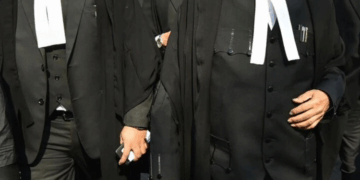Surprise visits by politicians to government departments, institutions, or hospitals are not a new phenomenon. These visits are often publicized as a demonstration of accountability and commitment to governance. However, they raise an essential question: are these visits an effective tool for addressing people’s problems and institutional challenges, or are they mere theatrics meant to garner public attention?
While such visits may occasionally reveal inefficiencies, the fundamental question remains – do these fleeting interventions lead to long-term systemic improvements, or would it be more effective for politicians to focus on building robust systems that function autonomously, ensuring accountability, efficiency, and motivation without external prodding?
The Illusion of Accountability
Surprise visits often aim to give the impression of hands-on governance. By catching employees “off guard,” politicians may expose instances of absenteeism, negligence, or corruption. These inspections occasionally result in on-the-spot solutions to glaring issues, such as broken equipment in hospitals or irregularities in service delivery. For the public, such gestures symbolize a government that cares and acts. And that is precisely what politicians aim at while conceptualizing a surprise visit.
However, these visits rarely address systemic issues. Employees who are caught underperforming may face temporary reprimands, but this does not resolve deep-rooted problems like lack of resources, inadequate training, or flawed recruitment policies. At best, such visits temporarily shake complacency; at worst, they foster a culture of fear and superficial compliance, leading to short-term cosmetic changes without substantive reforms.
The Deeper Problems of Governance
Institutions plagued with inefficiencies or dysfunction often suffer from systemic problems that no single visit can resolve. Common issues include:
- Lack of Resources: Many public institutions, especially in developing regions, are underfunded and poorly equipped. Surprise visits might uncover these gaps, but addressing them requires sustained financial and administrative investment.
- Inadequate Workforce Training: Employees often lack the skills or motivation to perform their duties effectively. Without ongoing professional development, temporary pressure from surprise visits achieves little.
- Structural Corruption: Corruption entrenched in institutions cannot be eradicated through episodic checks. It requires overhauling processes, transparency mechanisms, and strict accountability measures.
- Bureaucratic Inertia: Layers of red tape and outdated practices impede efficiency. Surprise visits cannot change this deep-seated culture; reforms in operational structures and procedures are essential.
- Policy Gaps: Many public problems stem from inadequate or outdated policies. A long-term vision and legislative action are required to bridge these gaps.
The Need for Systemic Solutions
Instead of relying on surprise visits as a governance tool, politicians should focus on making institutions self-sufficient and robust. The following strategies could foster sustainable improvements:
- Building Accountability Mechanisms: Effective governance requires transparent and measurable accountability systems. Performance evaluations, citizen feedback mechanisms, and regular audits can ensure employees perform their duties responsibly without needing surprise inspections.
- Employee Empowerment and Motivation: Institutions thrive when employees feel valued and motivated. Offering competitive salaries, providing professional development opportunities, and fostering a positive work environment can lead to better performance.
- Process Reengineering: Streamlining processes through technology and innovation can reduce inefficiencies and corruption. Digitizing records, automating workflows, and implementing real-time monitoring systems ensure transparency and efficiency.
- Policy Reforms: Robust institutions are built on sound policies. Politicians should prioritize legislative reforms that address institutional bottlenecks, resource allocation, and recruitment practices.
- Public Participation: Engaging citizens in governance can foster accountability. Platforms for grievance redressal, participatory budgeting, and community monitoring can make governance more inclusive and effective.
The Problem with Politicizing Surprise Visits
Politicians often use surprise visits as a public relations exercise. Media coverage of these visits creates an illusion of proactive governance, but it can also lead to unintended consequences:
- Demoralizing Employees: Surprise visits may demotivate employees who feel scrutinized rather than supported. This can lead to a toxic work culture where employees prioritize appearances over actual performance.
- Superficial Compliance: Institutions may focus on appearing efficient during inspections rather than addressing root causes. This results in a cycle of cosmetic changes without meaningful reforms.
- Undermining Institutional Authority: When politicians bypass institutional hierarchies to intervene directly, it can undermine the authority of administrators and managers. This creates confusion and weakens organizational structures.
The Case for Long-Term Reforms
A government’s success lies in its ability to make institutions self-reliant and efficient. Politicians should focus on the following:
- Recruiting the Right Talent: Hiring qualified, motivated individuals and providing them with opportunities to grow professionally can ensure a competent workforce.
- Investing in Infrastructure: Well-equipped institutions can deliver better services, reducing the need for external interventions.
- Ensuring Policy Continuity: Frequent policy changes disrupt governance. Long-term policies with bipartisan support ensure stability and growth.
- Fostering a Culture of Excellence: Rewarding innovation, recognizing achievements, and encouraging employee ownership of their work can create a culture of accountability and excellence.
- Strengthening Local Governance: Decentralizing decision-making powers and resources to local bodies ensures that issues are addressed promptly and effectively.
The Way Forward
Surprise visits can be a useful tool in governance, but they should not be the cornerstone of a politician’s strategy. While they may temporarily address visible inefficiencies, they cannot substitute for systemic reforms. The ultimate goal should be to create institutions where every employee feels motivated and accountable to perform their duties effectively, not because of the fear of being caught, but because of a shared commitment to service and excellence.
Governance is not about catching people off guard; it is about building systems that work seamlessly, delivering services to citizens without needing constant oversight. Politicians must shift their focus from theatrics to transformative leadership, ensuring that institutions become pillars of efficiency and reliability.
Surprise visits may capture headlines, but robust systems win trust. It is time for politicians to choose the latter, embracing the hard work of reform over the fleeting satisfaction of public spectacle. The “bitter truth” is that governance is not about appearances; it is about outcomes – and outcomes require systems, not surprises.
An author, a communications strategist, Dr Sanjay Parva was a debut contestant from 28-Beerwah 2024 Assembly Constituency




